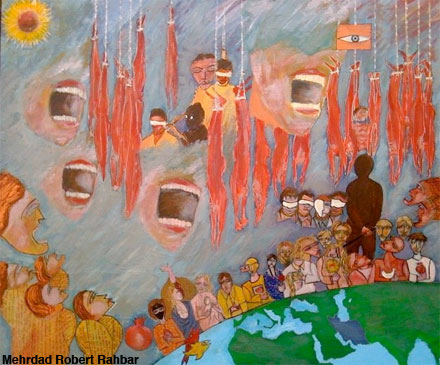
I am writing with regard to your March 25, 2011 editorial titled, “The United Nations’ human ‘rights’ council.” Like any intergovernmental body, the Council certainly has its shortcomings, but I strongly disagree with your overall assessment that the Council has done little in the less than five years since its founding. Your ill-informed opinion of the full range of the Council’s activities does a disservice to the thousands of victims who have been helped by the Council’s attention.
Specifically, I would like to contest your back-handed dismissal of the system of independent experts known collectively as “special procedures.” You claim they fail to capture the world’s notice when they investigate and speak out about human rights violations in Cambodia, North Korea or other countries. Apparently, you have not been paying attention.
It is true that these experts may not receive the international or U.S. media attention they deserve. But it is not for lack of trying. As I document in my two-year Brookings study released last October, Catalysts for Rights: The Unique Contribution of the U.N.’s Independent Experts on Human Rights, the Council’s special procedures are prolific workers. They annually conduct dozens of country visits, produce hundreds of country-specific and thematic reports documenting human rights problems, and issue thousands of communications alerting governments to individual cases of abuse. These experts are appointed by the Council, serve in their personal and independent capacities and carry out their mandates on a voluntary basis.
Contrary to your view that they are not heard, my research indicated that the special rapporteurs have a large audience where it matters most – at the national level where a UN expert carrying the blue UN flag attracts widespread media attention and gains access to power at the highest levels. Most importantly, they work directly with victims and human rights defenders to listen to and amplify their voices. Countless victims have been helped by their work: women prisoners in Afghanistan received regular doctor visits and better food after an independent expert intervened to uncover their plight; Indonesian migrant workers regained their identity documents after a special rapporteur discovered a secret agreement to allow Malaysian employers to seize their papers; journalists in Cambodia imprisoned on defamation charges were freed upon the special rapporteur’s urging. There are dozens more examples in my report of the positive impact these Council experts have had in a wide range of countries. These stories ought to be considered before the Post issues such one-sided opinions.
As I detail in my recent testimony to the House Foreign Affairs Committee, the Obama Administration’s commitment to improve the way the United Nations operates, including on human rights, has yielded real dividends on behalf of victims around the world. The most recent Council session, with unprecedented actions on Iran, Libya, defamation of religions, Cote d’Ivoire and LGBT rights, is yet further evidence that principled and pragmatic engagement makes a difference.
AUTHOR
Ted Piccone is a foreign policy and legal expert on issues of democracy, human rights, international organisations and Latin American affairs. Currently, he is the Executive Director and Co-Founder of the Democracy Coalition Project, a policy research and advocacy organisation working to promote democracy around the world.






